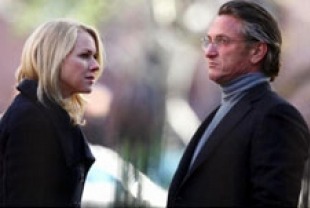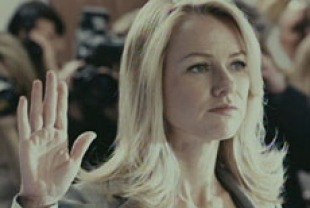Eleanor Roosevelt has written: "You gain strength, courage, and confidence by every experience in which you really stop to look fear in the face. You are able to say, 'I have lived through this horror. I can take the next thing that comes along.' You must do the thing you think you cannot do." Standing up for one's values is the hallmark of moral courage. Exemplars of this virtue include Mahatma Gandhi, Nelson Mandela, Lech Valensa, Vaclav Havel, Aung San Suu Kyi, and other whistleblowers, community leaders, and ordinary people from all walks of life. They share a commitment to moral principles, an awareness of the high cost of supporting those ideals, and a willing embrace of the danger involved in making a stand. Now more than ever we need principled individuals who are willing to stick their necks out for what they believe; equally important is that we lift our spirits by reflecting on moral exemplars of courage. Former CIA agent Valerie Plame and her husband Joe Wilson, a retired ambassador, fill the bill on both counts.
Fair Game is a political thriller based on the real-life scandal involving Plame and Wilson during the George Bush administration. It is directed by Doug Liman (The Bourne Identity) with a screenplay by Jez and John-Henry Butterworth.
The drama begins in 2001 in Kuala Lumpur where Plame (Naomi Watts) is on a secret mission involving nuclear non-proliferation. She proves herself to be both competent and a tough cookie who has survived in the field for 18 years as a member of an agency dominated by men. She is married to Joe Wilson (Sean Penn) and they have two children. Most of her friends have been told that she is a venture capitalist. Plame is named leader of the CIA's Joint Task Force on Iran — with a mandate to infiltrate Saddam's weapons programs. Plame's coworkers want to know about the reality of a report that Niger has made a large sale of 50 tons of "yellowcake" uranium ore to the Iraqi government. Wilson, a former State Department official, is dispatched to this African nation and discovers through his reliable contacts that no such deal has transpired.
When the White House ignores his findings and cites the disproved evidence of a uranium sale to Iraq as a sign that Saddam is in the midst of creating weapons of mass destruction, Wilson fires off an op-ed piece to the New York Times stating the rightness of his report and the White House distortions of what had happened in Niger. The Bush administration and Vice President Cheney in particular decide to play hardball with Wilson by naming his wife as a CIA operative, thus blowing her cover. This smear campaign is carried out by Scooter Libby (David Andrews) as Cheney's chief of staff.
At one point in the film, Plame tells her husband about winning a severe physical and mental test given by the CIA and coming to the conclusion that nothing could ever break her. But in one minute her façade as a venture capitalist evaporates; her job and everything she had set in motion is destroyed; she and her husband receive death threats; and her life becomes the subject of public scrutiny. One of her acquaintances asks: "Do you have lovers all over the world? Do you have a gun? Have you killed people?"
Plame's reluctance to go public about what has really happened causes a great rift with Wilson. He is galvanized by the need for someone to speak the truth about this messy affair and the deceptions and dirty tricks of the Bush administration. Instead of running from these power players who are changing the story (a tried and true trick in Washington, D.C.), Wilson tries to convince his wife to make a stand.
In this gripping portrait of a marriage under fire, Fair Game makes it clear that two against the world is sometimes necessary, and it is wonderful to have a passionate ally standing beside you as you strive together to do "the thing you think you cannot do."
Special features on the DVD include an audio commentary with Valerie Plame-Wilson and Joe Wilson.

